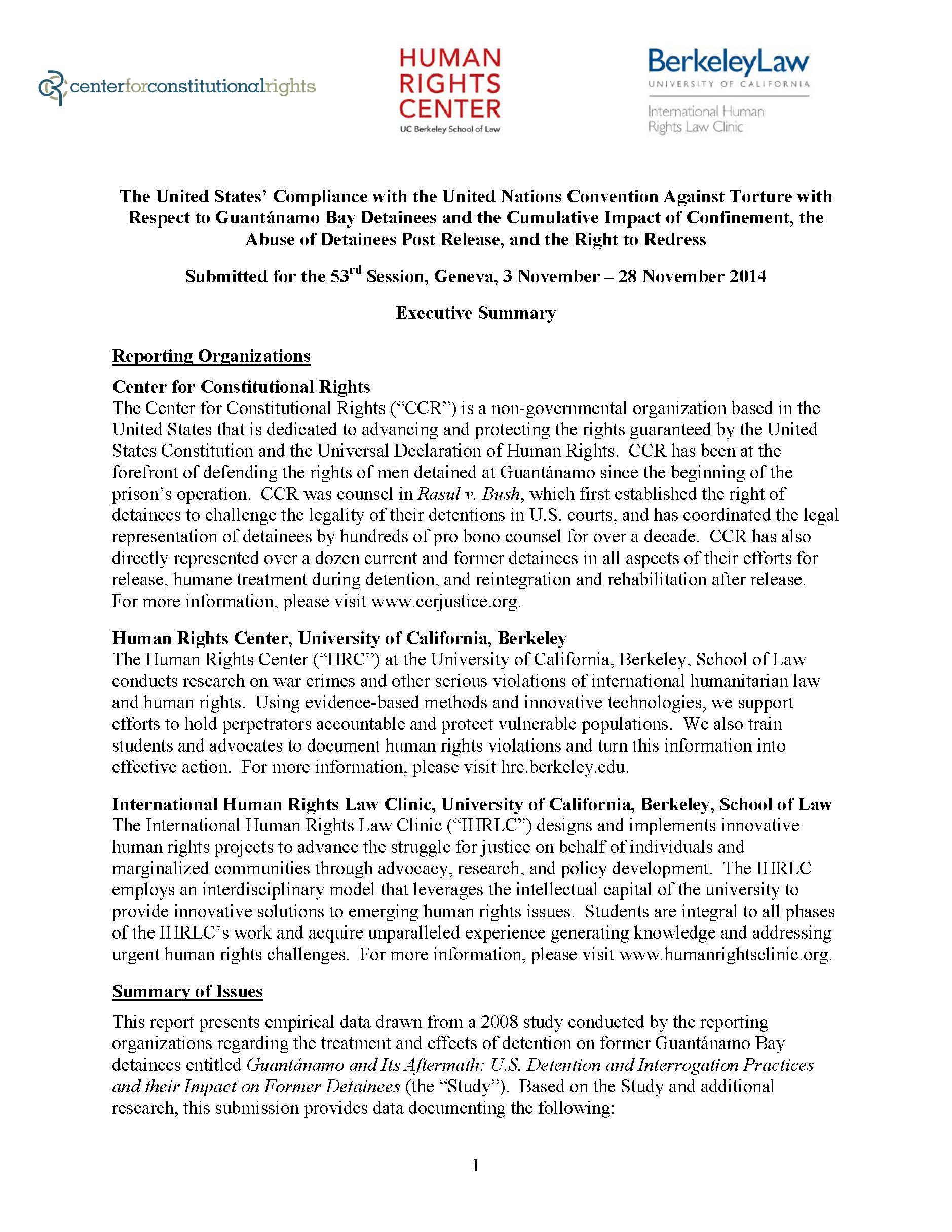The United States’ Compliance with the United Nations Convention Against Torture with Respect to Guantánamo Bay Detainees and the Cumulative Impact of Confinement, the Abuse of Detainees Post Release, and the Right to Redress
Download PDFSummary
This report presents empirical data drawn from a 2008 study conducted by the reporting organizations regarding the treatment and effects of detention on former Guantánamo Bay detainees entitled Guantánamo and Its Aftermath: U.S. Detention and Interrogation Practices and their Impact on Former Detainees (the “Study”). Based on the Study and additional research, this submission provides data documenting the following: 1) The cumulative effect of indefinite detention and abuse experienced by some Guantánamo detainees constitutes torture and cruel, inhuman or degrading treatment in violation of Article 1. Guantánamo Bay detainees experienced this cumulative effect as a result of a system of indefinite confinement that collectively dehumanized detainees by subjecting them to desecration of the Quran, sexual humiliation, short shackling, stress positions, extended exposure to extreme temperatures, and prolonged isolation. Psychological torture as interpreted by the Committee and the U.S. incorporates the concept of the cumulative effect of detention procedures at Guantánamo Bay. 2) Former detainees reported post release mistreatment that constitutes cruel, inhuman and degrading treatment or torture in violation of Article 3. Former detainees reported being beaten by domestic security agents after their release from Guantánamo — both in prison and during interrogation — as well as being forced to take hallucinogenic drugs, and having their families threatened. 3) Former detainees suffered economic, psychological, physical, and social harm as a result of their detention and ill-treatment at Guantánamo Bay and thus are entitled to fair and adequate compensation under Article 14. At the time of their interview, only six of the sixty two former detainees in the Study had permanent employment, almost two-thirds reported having emotional difficulties post release, and most had experienced a Guantánamo-related stigma that hampered their reintegration.


